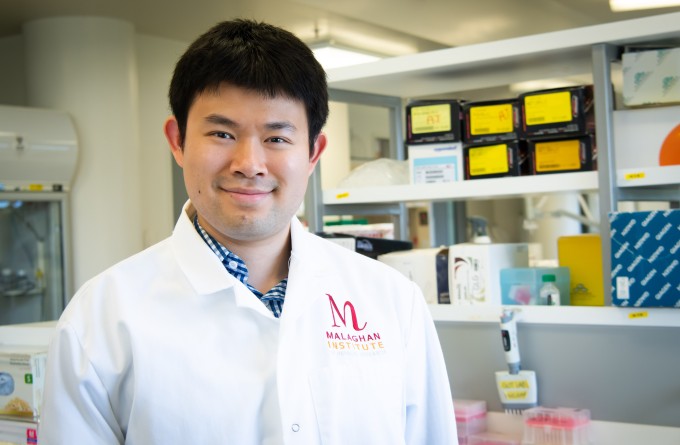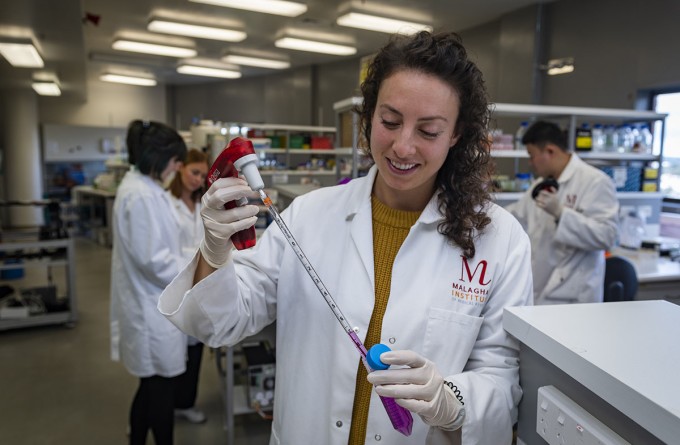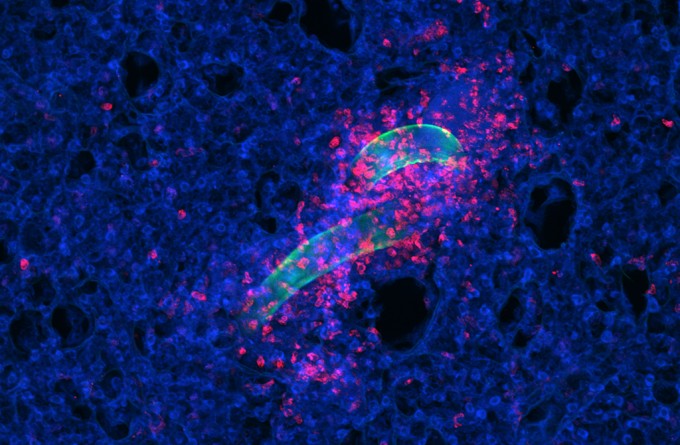1 November 2022
A new study has its sights set on better understanding the far-reaching consequences for a person’s health and wellbeing of nurturing a growing immune system.

Funded by the High-Value Nutrition Ko Ngā Kai Whai Painga National Science Challenge, the SUN (Seeding throUgh FeediNg) study is investigating whether introducing dietary fibre to babies as they first start to eat solids can promote good gut and immune health.
The study involves researchers from the University of Auckland, AgResearch, Plant & Food, Massey University’s Riddet Institute, the University of Otago and the Malaghan Institute.
In the first months and years of an infant’s life, their immune system is learning to recognise what is good, what is harmful, and what’s needed to keep them healthy. How the immune system develops in these formative years, in particular how the environment – such as diet – and gut bacteria – or microbiome – shapes the profile of immune cells and can set a person up for life, both positively and negatively.
 “We know that the human gut microbiome – the bacteria and other microorganisms living in our gut plays a major role in our health”, says Professor Clare Wall (left) at the University of Auckland’s Faculty of Medical and Health Sciences, who is leading the study. “Babies are born with hardly any gut bacteria. Their gut microbiome develops during their first months of life, influenced by their mode of birth delivery, milk feeding and environment.”
“We know that the human gut microbiome – the bacteria and other microorganisms living in our gut plays a major role in our health”, says Professor Clare Wall (left) at the University of Auckland’s Faculty of Medical and Health Sciences, who is leading the study. “Babies are born with hardly any gut bacteria. Their gut microbiome develops during their first months of life, influenced by their mode of birth delivery, milk feeding and environment.”
Professor Wall says few studies have looked at how the introduction of solids along with continued milk feeding impacts this development, and the complementary feeding period is a great opportunity to introduce foods that optimise a baby’s health.
“Our motivation is to have a deeper understanding of how the introduction of complementary foods effects the development of the infant microbiome and how this interacts with and influences the immune system. We are also interested in how the change in the diversity of the microbiota can impact on other health and development parameters such as weight, length and sleep.”
The study kicked off in January this year and is expected to continue into late 2023, with mothers introducing a fibre-rich supplement – a kūmara powder paste – as their baby starts solid foods but is still breastfeeding or receiving infant formula. Lasting around four months per participant, a number of samples will be collected to gather insight into how the infant’s microbiome and immune profiles change in comparison to a control group, and whether this might correlate to any known health benefits.
 Malaghan Institute Postdoctoral Research Fellow Dr Alissa Cait (right) will be analysing changes to the infants’ immune systems.
Malaghan Institute Postdoctoral Research Fellow Dr Alissa Cait (right) will be analysing changes to the infants’ immune systems.
“I’m investigating how a fibre intervention might change the trajectory of immune cell maturation – between six to ten months. We’re interested in this really transformative phase of an infant’s immune system development – an early life critical window where all signs point to having the greatest impact and where you’re most likely to have successful interventions.”
Conditions such as allergies, chronic inflammation and autoimmunity are often life-long diseases that negatively impact on a person’s health and wellbeing. What causes a person to develop these diseases, and their specific genetic and environmental triggers, is still largely unknown and varies dramatically from person to person. However, many allergy researchers agree that it’s what happens early in life that often determines how severe the disease symptoms and progression might be.
“We’re wanting to see if dietary fibre intervention can help prevent the development of allergic-related cell types,” says Dr Cait. “There are certain markers we’ll be looking for. For example, lots of regulatory T-cells are a good sign that the immune system is developing well. Will increased fibre have any impact on this? That’s something we hope to find out.”
However, Dr Cait is quick to point out just how little research has been done on infant immune development, and that there is a long journey ahead in order to draw any widespread conclusions.
“Understanding more about the development of cell types in early life is really interesting. Very few studies have been done at this age so it's all very exploratory, which makes it exciting. Does more of a certain cell type translate to something significant as an adult? Possibly. We need to do the groundwork to find out, which this study is just a part of a wider picture of immune health and development throughout our life.”
Is your baby getting ready to start solids? The University of Auckland is currently seeking parents/caregivers of 300 babies in greater Auckland who plan to introduce solids at around six months of age to participate in an exciting study! Researchers in the Department of Nutrition want to understand how the introduction of a specific food during complementary feeding (kūmara) influences an infant’s gut bacteria and protects them against respiratory infections. If you or anyone you know is interested, you can find more information at www.thesunstudy.auckland.ac.nz or contact the team on [email protected].
Related articles

New study sheds light on why fruit and vegetables are good for gut health
13 October 2023

‘Infect and forget’: Hookworm study sets groundwork for medication-free management of inflammatory bowel disease
16 June 2023

In Focus: Cultivating a healthy, diverse and blooming microbiome
12 April 2023

Samoa Capital Radio - science series with the Malaghan Institute
3 October 2022

Study finds a high-fibre diet can improve immune response to vaccines
18 November 2021

Could a dose of worms be the answer to treating incurable autoimmune diseases?
14 November 2021
